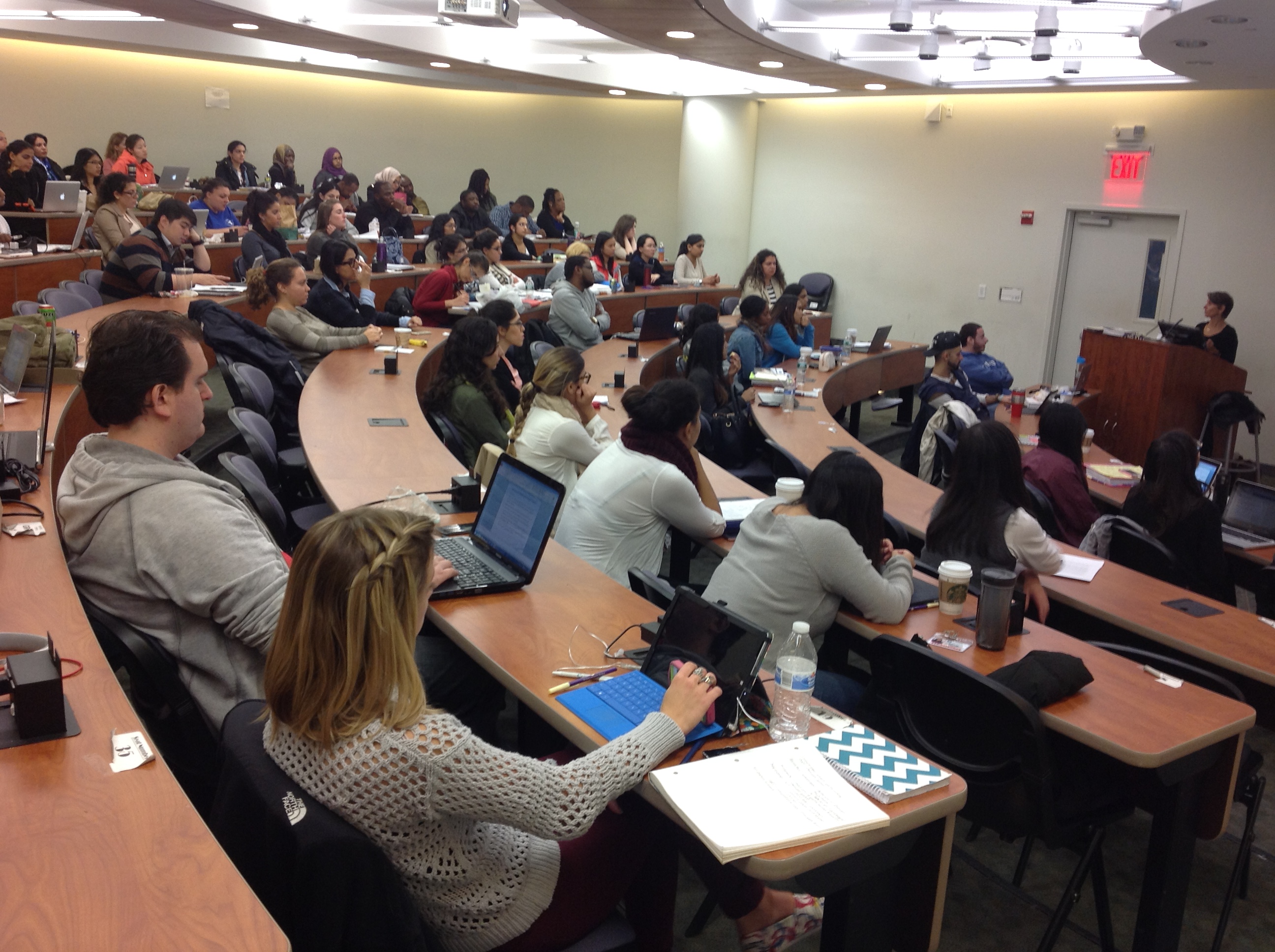News
A Pharmacist’s Rx for Elder-Abuse Prevention
Three Tips From Joy Solomon, Esq. on Knowing the Signs and Your Responsibilities
October 28, 2015

This past week, Joy Solomon, Esq., Director and Managing Attorney of The Harry and Jeanette Weinberg Center for Elder Abuse Prevention at the Hebrew Home at Riverdale, came to speak about elder-abuse prevention at the Touro College of Pharmacy. Below are three main tips she offered to help PharmD students understand what elder abuse is—and what to do if abuse is suspected.
- Know the key signs. “Pay attention to warning signs of elder abuse,” began Ms. Solomon. “If the senior demonstrates symptoms such as unexplained physical injuries; agitation, trembling, confusion, and emotional distress; a withdrawn affect; self-destructive behavior; unexplained loss of financial independence and a recent inability to pay for medications, these may be signs of elder abuse. Additionally, a caregiver who always speaks for an able adult, or a new caregiver being forceful about getting narcotic RXs filled, but not other important meds, are red flags.”
- Ask questions. “Don’t be afraid to engage your clients in a general conversation about their safety and wellbeing if you suspect abuse,” said Ms. Solomon. “Questions relating to possible abuse should always be asked with the older adult alone.
- Understand your unique position as a pharmacist. “Pharmacists are in a unique position of trust with older adults,” Ms. Solomon explained, “as you may be one of the few professionals an older adult sees in her life. Know that abusers use isolation as a way to keep the abuse going. Every state has elder abuse resources for more information about what to do if you suspect abuse. Talk to a supervisor if you have immediate concerns, and remember that no matter what, you are not alone.”

